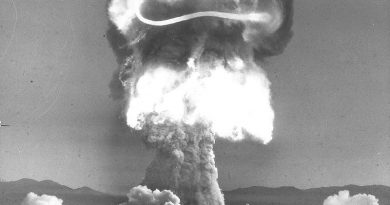I hope it never happens, but if it does… Mindset is a survivor’s greatest tool.
It will never happen…
These are the self defeating words often followed by “I thought it would never happen.” Some scenarios are distasteful. Often when the topic of disasters, crimes, and preparing for those events, it is common to encounter dismissive attitudes. Some of my favorite dismissive phrases are: “That will never happen in the United States”, “I don’t like thinking about it”, “We’re so far away from that ever happening.”
It will never happen to me…
Another mental obstacle to true preparation is this oft pondered thought. Often people will accept the dangers of society, but rather than address their own vulnerabilities, they simply mentally say to themselves, “those things happen to other people.”
If that ever happens there’s nothing you can do…
Another common dismissal of the preparedness mindset. The fact of the matter is that when something bad happens you could die. Traffic accidents are dangerous, if you are in one you could be injured or killed seat belt or no. But when we get into cars we still don our safety belt. Could a seat belt be the difference between death and being a quadriplegic? Sure. But on the other hand there are a plethora of the much more common example where a seat belt has been the difference between death and no injury. In the moment of the accident little can be done to address safety concerns, the preparation has to be done before hand. When someone looks at preparedness and dismisses it in this fashion they are effectively electing to not buckle the safety belt.
But getting prepared is hard…
This is the most honest reason not to prepare. The news and history are rife with examples of disaster, despotism, war, and chaos. Recognizing preparedness is hard to do is commonly felt and uncommonly voiced by those who don’t want to do it.
Prioritizing your resources is a good place to start. In the early days of the smart phone I spoke with a man who was paying over $300 every month for multiple phone plans. He told me that it was to expensive to store food. I thought to myself “If you took a 3 month hiatus from one of your data plans, you could buy a good supply of basic food storage staples.”
Mindset.
All these excuses and reasons for not preparing kill preparedness before it is even attempted. This dismissal is the point of failure that exposes these folks for perhaps the biggest problem they will face if disaster strikes: a vulnerable mind. The mental results of failure to think about these problems will be catastrophic for the unprepared. Anger and panic will exacerbate any disaster.
I remember a time where a woman was chewing me out over the phone because her purse was stolen from out of her car. She told me that it was the first time she had left her purse in her car, and insinuated that I was somehow at fault for not protecting her her purse from theft. “My social security card is in my purse!” She pleaded with me to fix her problem, but I was powerless to do so.
Ultimately she was angry, she was the victim of crime. The societal deterrence of the police had not protected her property and she was unwilling to look at her own actions as contributory to her victimization. Clearly the culprit in this case was the thief, however she could have taken a simple action and avoided victimization all together. She probably knew her purse could be stolen if she left it in her car, but she also thought “it will never happen to me.” She also knew that if her purse was ever stolen her Social Security Card was in it, and it’s theft would further expose her. But since she thought her purse would never be stolen she did not put he Social Security Card in a safe location in her home, probably because it’s location in her purse was more convenient for her.
Courage is not the absence of fear.
Mental preparedness is perhaps the most difficult aspect for anyone. Pondering disaster, and danger can produce feelings of fear. Courage is the will to act in spite of fear. It is a baby step but having the courage to ignore the feelings of fear and ponder and plan for distasteful events is progress.
I remember a brisk night when supervisors elected to do some training. By this time I was a newer solo officer. We were summoned to the Fire Department training facility, I remember driving into the parking lot to see two police cars projecting their spotlights onto the 8 story tower. I visually tracked two lines going all the way to the top of the tower.
My squad climbed the stairs to the roof. The wind blew past us as we looked out at the lights across the city. Starkly taller than the surrounding industrial sprawl, this building was by far the tallest around by a good 6 stories. We were going to rappel off the top. To this point my longest rappel was perhaps 30 feet. My gut filled with apprehension. To experienced canyoneers this might be a small rappel. For me as the wind rushed by me and I could see distant cars below, I felt as if I were on the top of the world.
A good friend who had served as a Paratrooper for the US Army could see my apprehension. He asked me if I was scared. I replied “That’s a big rappel.” Then he told me “Every time I jumped out of an airplane I was scared.” He had reminded me that fear is not something to be ashamed of, but rather something that defines us based on how we act when faced with it. I completed my rappel.
I hope it never happens, but if it does…
Mental “war-gaming” is a technique used by police officers to consider an event and mentally address the threats beforehand. Police officers will also discuss these “war-game” scenarios with other officers, then make variations on these scenarios.
It is a stark contrast from the mental avoidance of “It will never happen” or “It will never happen to me.” Police officers do this to mentally prepare for the bad scenarios, address deficiencies in their gear and training.
Consider this technique. Think about preparedness scenarios, and how you might address them. Evaluate deficiencies in your plans and gear. Preparing well for an emergency does not make you paranoid or a pessimist, it only makes you prepared.



